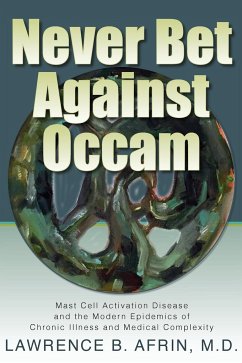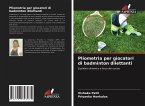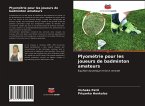Dr. Afrin earned a B.S. in computer science at Clemson University in 1984 and then an M.D. at the Medical University of South Carolina (MUSC) in 1988, where he also pursued internal medicine residency and hematology/oncology clinical and research fellowships. While on faculty at MUSC from 1995-2014, he was active in undergraduate and graduate medical education, educational and information technology administration, and practice and research in hematology/oncology and medical informatics. Since the mid-'00s, his clinical work has increasingly focused in hematology, especially mast cell disease. In 2008 Dr. Afrin started coming to understand that a newly recognized type of mast cell disease, now called mast cell activation syndrome (MCAS), was the underlying diagnosis in many patients he was seeing who were each suffering large assortments - quite different from one patient to the next - of chronic multisystem inflammatory illnesses of unclear cause. Dr. Afrin soon gained experience that MCAS is far more prevalent than the only mast cell disease previously known to medicine (the rare disease of mastocytosis) and that most MCAS patients, once accurately diagnosed, can eventually find significantly helpful medications targeted at the disease. The frequency and magnitude of the improvements Dr. Afrin has seen - even the relief that comes from finally having a unifying diagnosis other than "psychosomatism" - have spurred him to focus in this area, not only tending to the needs of his patients but also pursuing research to advance our understanding of the disease and helping to educate other professionals who in turn can help even more of the many people who have long been suffering not only the symptoms of the disease but also the natural concern of not understanding why one would be so "unlucky" to have acquired so many medical problems. As it turns out, such patients are not so unlucky and truly have just one root issue (and a very common one at that) which has the biological capability to develop, directly or indirectly, into most or all their previously diagnosed problems. There is a great deal yet to learn about this, but even with just the present very limited understanding, the opportunity to diagnose and help patients with MCAS seems to be enormous and Dr. Afrin felt a description of the disease, written for the general public, might help lead some MCAS patients on a journey to diagnosis and improvement sooner rather than later. He joined the University of Minnesota in 2014 to further his interests in this area. He has an extensive record of peer-reviewed publications and has spoken widely in his areas of interest. If you have questions pertaining to Dr. Afrin's book, or would like more information, please email info@mastcellresearch.com. You can also visit www.mastcellresearch.com. Or, find us on Facebook @facebook.com/mastcellresearch/, and Twitter @MastCellHelp.
Hinweis: Dieser Artikel kann nur an eine deutsche Lieferadresse ausgeliefert werden.
Hinweis: Dieser Artikel kann nur an eine deutsche Lieferadresse ausgeliefert werden.








